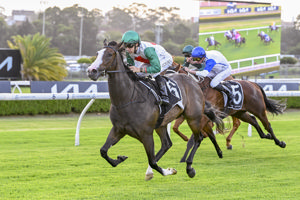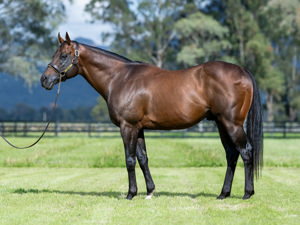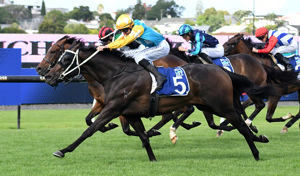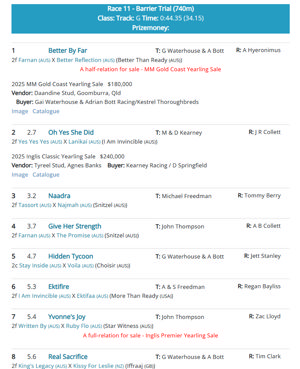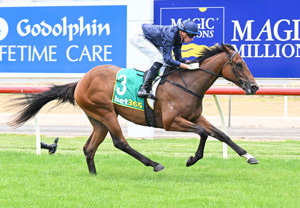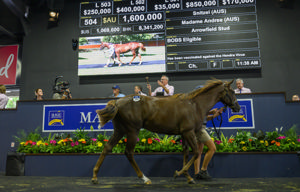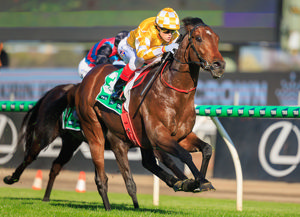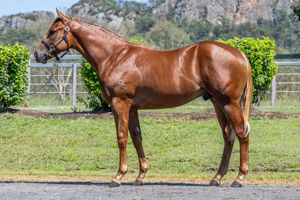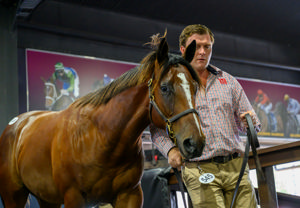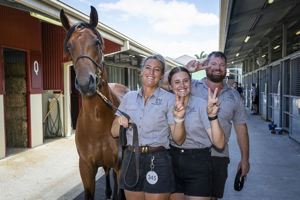Over the many years I’ve been writing tax articles for the horse industry, there has been a handful of articles that I rate amongst my all-time favourites, one of these being the 1998 article I wrote about the tax win of the David Hains battle with the ATO, all to do with the tax status of the sale of his champion racemare, “Rose Of Kingston”, to his related horse trust.
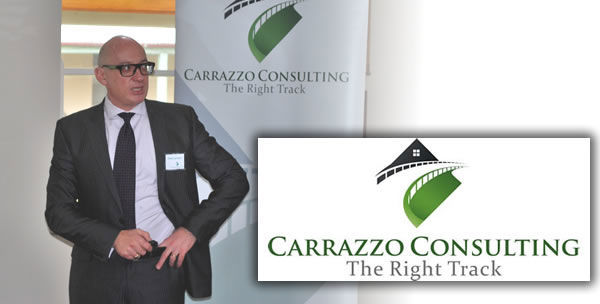
The memory of David Hains and his immense contribution to the breeding and racing industry is top of mind today after learning of his sad passing – the industry owes a great debt of gratitude to this man, a true innovator whose business skills and success obviously went well beyond the racing industry.
Nearly 25 years have passed since David Hains had this tax win, but, importantly, the principles surrounding this case have not changed, i.e., the income tax “business” status of an individual and his horse entity, in this instance a family trust, can vary depending on the circumstances.
As a timely tribute, below I reproduce that article, virtually to the word. Enjoy the read and I urge you to still keep it at the top of your horse tax references.
Vale David Hains, gone but never forgotten.
- OVERVIEW
It is not very often that a horse industry tax case makes news within the mainstream media - unless the aggrieved party happens to be of the profile of millionaire merchant banker and incredibly successful breeder/owner David Hains.
As a tax adviser to the industry, I welcomed the relative prominence this case received earlier this year as the final outcome further highlights that financial means and success does not guarantee a taxpayer will be considered as conducting a "business" of horse racing and/or breeding for tax purposes.
Mr. Hains, with the assistance of his tax counsel, Mark Leibler, successfully argued that the sale of his great racehorse, and later broodmare, Rose of Kingston, to his family breeding company was not assessable to taxation on the basis that during the tax year in question, 1987/88, he was not carrying on the business of racing, breeding, training or trading in racehorses.
Like many of my clients, I'm sure you're curious as to how Mr Hains, who has been so successful and invested so much money into the industry, could successfully argue that tax was not payable on the disposal of one of his high profile horses, especially given the amount of tax in dispute.
The greater majority of this article will be spent summarising the facts of this case and reinforcing the principles that emerged from it. What became obvious to me on review of all of the facts is that it is definitely the profit intention of the taxpayer that emerges as the key determinative used by the ATO when deciding if a taxpayer is conducting a business of racing and/or breeding for tax purposes; this conclusion being consistent with the tax cases and ATO rulings in this area.
2. FACTS OF THE "HAINS" CASE
Sale of "Rose of Kingston" to David Hains for $50,000
In May 1981, Mr Hains acquired legal ownership of "Rose of Kingston" from his family breeding company, Kingston Park Studs Pty Ltd ("KPS"). The parties settled on a value of $50,000 as the transfer price, a price considered as being realistic given that she had already won 2 races since she commenced racing on 11 October, 1980.
Mr Hains did not make a habit of acquiring racing stock from his breeding company, however he chose to acquire and race "Rose of Kingston", based primarily on his mother's affection for it as a foal. Counsel for Mr Hains noted that during his period of ownership of the mare, he owned no other horse in connection with the activities of KPS.
What should be noted at this time is the pre–Capital Gains Tax acquisition date (May 1981) of the filly by Mr Hains. Therefore, the ATO could not argue that capital gains tax applied on her future disposal as this tax only relates the disposal of assets acquired after 19 September 1985.
In February 1996 Mr Hains received a letter from the ATO stating that the objection had been disallowed. Within this ATO response, Mr Hains was reminded of his legal right to appeal the decision via the Administrative Appeals Tribunal or Federal Court. An appeal was lodged with the Federal Court.
As part of the legal formalities relating to the intended appeal, in September 1996 the counsel representing Mr Hains filed an "Applicant's Statement Of Facts, Issues and Contentions." The grounds for appeal were clearly stated in this document, amongst the more important being:
- the $600,000 profit on the sale of the horse is of a capital nature and not to any extent assessable;
- the horse was not acquired for the purpose of profit making by sale or in carrying on or carrying out any profit undertaking or scheme;
- Mr Hains was not carrying on the business of racing, breeding, training or trading horses for their bodily produce; and
- as the horse was acquired pre-20 September 1985, the profit was not subject to Capital Gains Tax.
3.THE DAVID HAINS VICTORY - ATO AMENDMENT WITHDRAWN
Between the time Mr Hains filed for a Federal Court appeal and the actual hearing date, parties to the matter would have been encouraged to negotiate a settlement. One can only assume that the Hains camp had been very effective in their negotiations with the ATO, given that the case never made it to the Federal Court.
In legalistic jargon, consent orders were issued by the Federal Court on 23 March 1998 stating that the ATO had agreed allow the original June 1995 objection, which effectively meant that the $600,000 profit on the sale of "Rose of Kingston" by Mr Hains to KPS was considered not to be assessable.
Unfortunately, the rationale for the ATO decision does not have to be made available on the public record. Given the formal grounds for objection quoted above, one could only assume that the ATO relented to the argument that Mr Hains was a hobbyist during the tax year in question. Indeed, my sources confirm that the ATO decided not to pursue the case and allow the objection after their reconsidering of the grounds for objection. As a tax adviser, it is comforting to know that the case was decided upon by reference to the prevailing tax laws and principles, not a procedural flaw in the ATO case.
What we do know, via ATO rulings and case law, is what factors the ATO consider relevant when determining if a taxpayer is conducting a business of horse racing and/or breeding. Having regard to these factors and the facts of this case, I will comment below on the issues that may have eventually convinced the ATO that Mr Hains activities were those of a mere hobbyist.
a) The activity was conducted without the intention of making a profit and primarily for pleasure
You don't have to be very clever to deduce that, given his vast financial means, Mr Hains did not really need the money from the racing and sale of "Rose of Kingston".
Of course, he would have preferred to make a profit rather than a loss from her racing, but his very financial existence was not dependent upon it.
It may have been concluded that Mr Hains, like many of us, was merely a keen follower of the turf who derived a great deal of satisfaction from the racing of his stock, and that his activities did not constitute a business conducted for a profit.
b) The activities were not so considerable, systematic and organised to exceed that of a mere follower of the turf
Given the demands upon his time, it is likely that Mr Hains devoted little time to the activity, other than attending the races when "Rose of Kingston" raced.
Mr Hains may have been able to overcome this limitation by having a full time racing manager, but this appears not to have been the case.
Other factors, which may have indicated that his personal horse racing activities lacked a significant commercial purpose and character, include:
- no business plan in place showing how his activities would be viable;
- lack of numbers and regularity of activity; and
- the non-seeking of expert advice.
4. LESSONS FROM THE "HAINS" CASE
The significance of this case is that it emphasises how advanced one's racing and breeding activities must be before it is accepted as a taxation business. As I'm sure regular readers of my articles would know: no business, no tax deductions.
It should highlight to those of you wanting to enter the industry that the ATO is at least being consistent in its application of the guidelines in this area, which in this case was very much to their financial detriment.
You are welcome to contact me if you would like me to clarify or expand on any matters I have raised in this article.
PAUL CARRAZZO CA
CARRAZZO CONSULTING PTY LTD
801 Glenferrie Road, Hawthorn, VIC, 3122
TEL: (03) 9982 1000
FAX: (03) 9329 8355
MOB: 0417 549 347
E-mail: paul.carrazzo@carrazzo.com.au or team@carrazzo.com.au
Web: www.carrazzo.com.au

